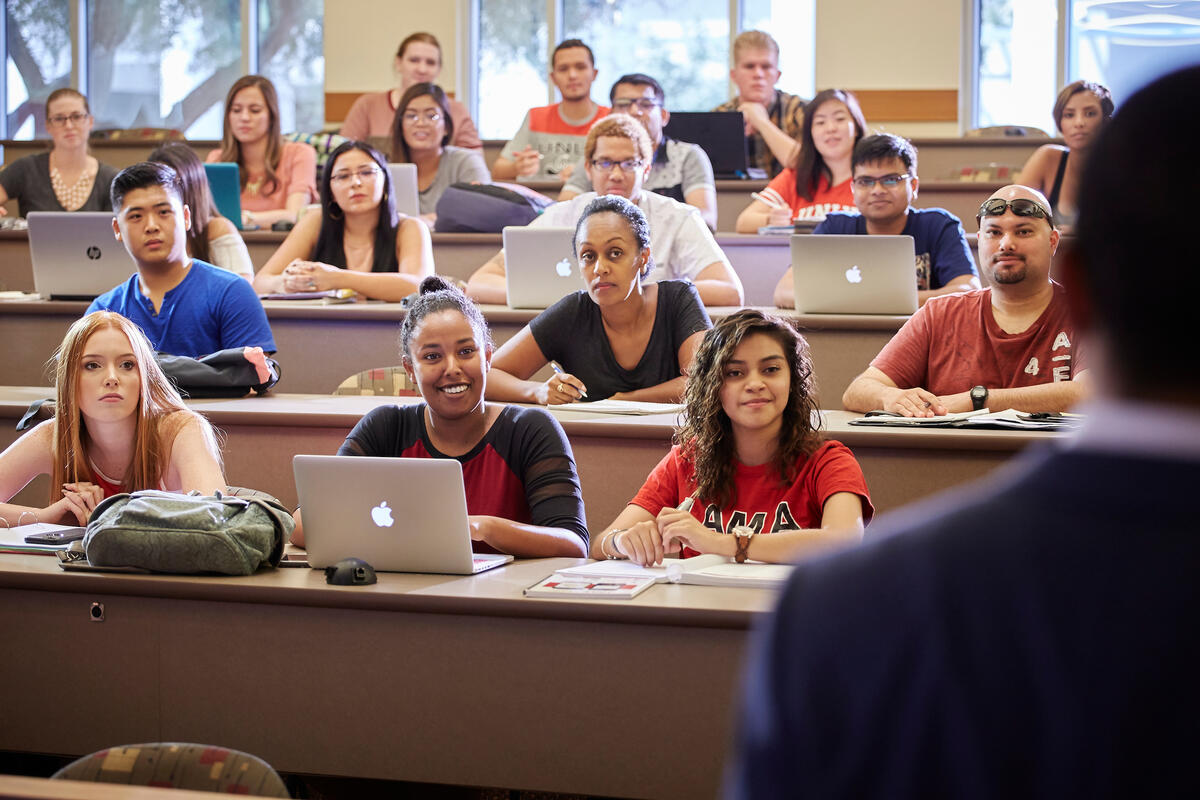We’ve heard this message repeatedly after the Dec. 6 tragedy: “It’s OK not to be OK.” But how does that affect the classroom?
This semester, students, faculty, and staff members have connected with the many resources available through the Rebel Recovery Program to seek support for their emotional and mental well-being.
Professors found it especially important to follow the principles of trauma-informed teaching. This approach helps create a classroom atmosphere where students can feel at ease and be productive in their studies, particularly during a unique and challenging semester.
For Robert "Bob" Cornell, associate professor of accounting, understands the importance of regularly connecting with his students and offering flexibility with the class workload. It’s a practice he implemented even before the fall semester. Through this method, Cornell was able to establish an environment of open communication with students taking his online course. In return, students felt they could voice their concerns with confidence.
“The one thing I have learned is that we all have our personal challenges and then we have our work challenges. Everybody has at least one,” Cornell said. “If you approach every person as if they're dealing with a serious crisis, you'll be right most of the time.”
He was more rigid with deadlines and maintained a strict schedule in the past, but he realized that students didn’t fare well with that approach.
“I think that the world has shifted. That doesn't work anymore,” Cornell said. “I don't think it does any good. I don't think there's any benefit to it.”
While the rigor of his class curriculum remains intact, he said, technology tools, accessibility to resources, and communication help students navigate the course at their own pace.
Sometimes, students just need someone to talk to. Cornell said students will share the struggles they’re going through during impromptu one-on-one virtual chats. While he emphasizes he’s not a therapist, Cornell does connect students with mental health, academic, and disability resources.
“As professors, we have a lot of tools that we can use if we understand them to accommodate those challenges,” he said.
Assistant professor-in-residence Van “DocDoc” Whaley, who teaches kinesiology, said the university's resources empowered him to approach teaching this semester with care and understanding effectively.
“Some students don't want to talk to people, but they want to go on and read stuff online: ‘Here's a link to the Rebel Recovery Program with the student support guide.’ Other students are like, ‘I don't want to read. I just want to sit down and talk to somebody.’ Perfect. Let's go to CAPS or meet with me,” Whaley said.
“I'm real proud of how UNLV has supported us in different ways from the [President's Mental Health] town hall to the one-on-ones. It's been helpful.”
Whaley created a Canvas page for students to easily access the link to the Rebel Recovery Program and other resources.
From the start of the semester, Whaley and his kinesiology and nutrition sciences colleagues set welcoming and supporting tone for their classrooms.
“We've got 15 different anatomy instructors, because we have lab and lecture, and we all met before the first day of class and just had the mindset that we're going to support. We're going to help students, and we're going to be there,” Whaley said.
Whaley found that attendance has been better than he expected.
“I feel like students want that camaraderie, and they just want to feel like it's normal for them to be on campus,” Whaley said. “They need to be supported by not only professors, but also by their classmates. Sometimes those five minutes before class starts, when students are just kind of talking about their day or what they did, those are some powerful connections.”
Whaley opted for a flexible class schedule and a pause on pop quizzes to encourage in-person attendance until next semester. He understands the need to prioritize students’ well-being.
“I just understand it's a human thing, we all went through human times, and this was a very trying human time,” Whaley said.
Cornell reports that students have responded well this semester to the expanded resources and frequent communications from UNLV to prioritize mental well-being. His fellow colleagues appreciate it, too.
“The one thing I heard universally for several weeks and continued to hear was how effective the senior leadership at UNLV was at managing the crisis and communication,” Cornell said.
As we approach the halfway point of the semester, resources continue to be made available for students, faculty, and staff.
The Teaching and Learning Commons will continue to compile resources in the Teaching After Trauma resource shell throughout the semester.



